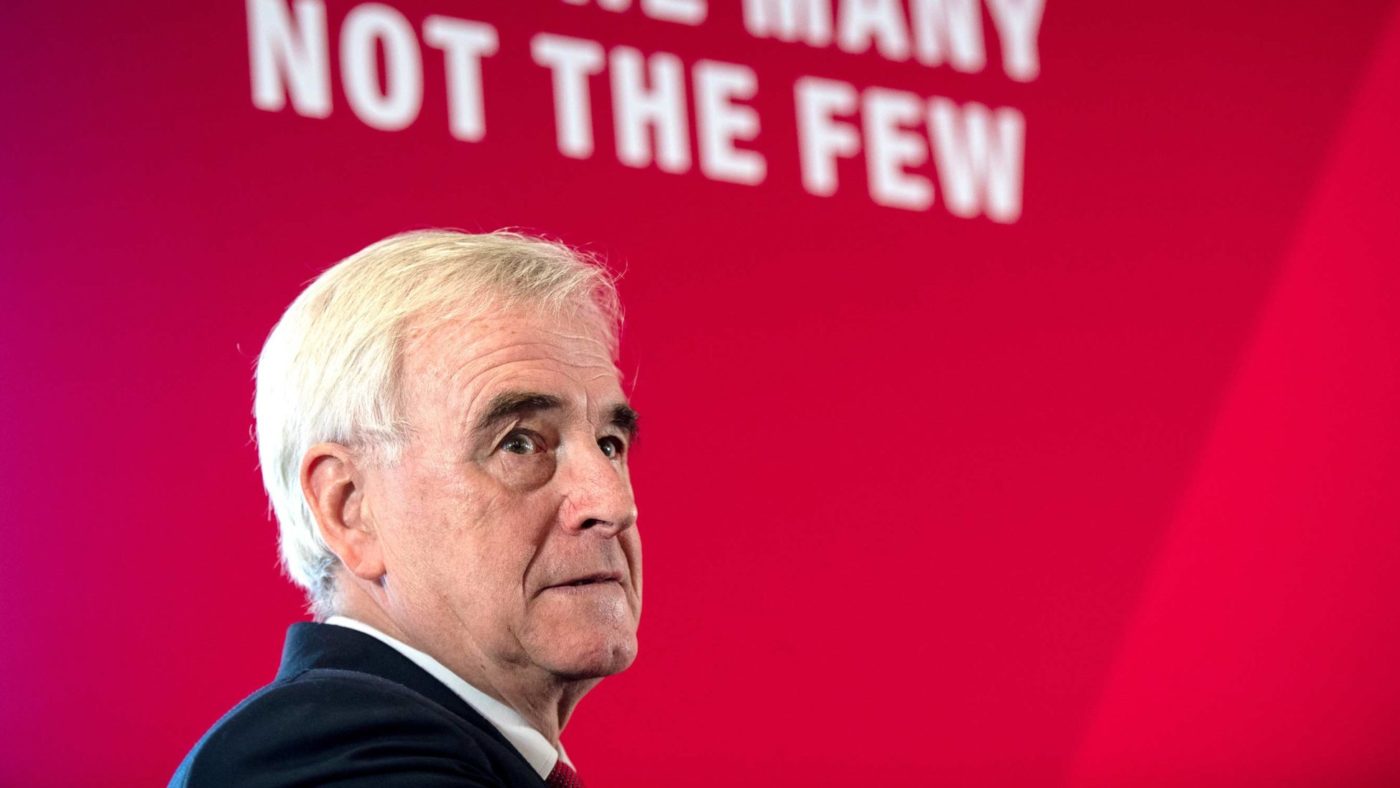Any suggestion that Labour might tone down their extensive nationalisation agenda fell by the wayside the moment ‘free broadband for all’ found its way into the party’s manifesto.
But in case you weren’t clear, John McDonnell has now pledged to begin nationalising energy and water in the first 100 days of a Labour election victory, with railways, broadband and the Royal Mail presumably not far behind.
With a return to state-run enterprise a very real possibility as early as next year, the time is ripe for the IEA’s latest paper:, Renationalisation: Back to the Future?, which looks at the recent history of privatisation and how well it has worked out.
Spoiler alert: it’s not always perfect, but it’s a massive improvement on what we had before.
The practicalities of nationalisation and McDonnell’s suggestion that ‘Parliament will determine the price’ are important, not least because Labour would face a huge, time-consuming battle in the courts. Nonetheless, the Shadow Chancellor is not entirely wrong, at least in the short run, to say that the exchange of shares for government bonds is mainly of accounting significance.
What is more important, and less discussed, is the likely future conduct and performance of nationalised industries. Those advocating renationalisation – which include some in the Scottish National Party, the Green Party and Plaid Cymru as well as the Labour Party – hold up the supposed failings and excesses of privatised utilities as a justification for nationalisation.
No one is pretending the current system is perfect, but critics of privatisation show little evidence of serious thinking about how to run sustainable businesses that will improve services, without the spur of competition or the profit motive.
When the poor record of historically nationalised industries is brought up, fans of renationalisation tend to dismiss this as irrelevant. ‘This time it will be different’, they claim.
But we are already seeing the same tried and failed thinking that inhabited nationalised industries of old. Populist proposals to freeze rail fares would make the railways an even bigger drain on the taxpayer while adding to overcrowding. Artificially low fares, together with ‘free’ travel for young people and ‘free’ broadband from the cradle to the grave, would produce perverse redistributive effects.
Bringing these industries into state control would mean they became totally dependent on government for investment as well as day-to-day management.
History shows us that higher pay for teachers or doctors is always more popular than building a new reservoir or improved signaling on the Leeds-Bradford line. Public sector investment is always first for the chop when there is an economic downturn, as there are not such obvious losers as there would be with benefit cuts or tax rises. Before Thatcher, state-run industries suffered from chronic under-investment and there is little reason to believe future nationalisations would be any different.
Ideas for a new model of nationalisation are also fraught with risk. Proposals such as devolving rail transport to city regions and energy generation to local suppliers seem likely to reduce economies of scale and scope, raise costs and increase demands for subsidy which would again fall on the taxpayer.
Productivity increases – on which all our living standards ultimately depend – would be few and far between in state-owned businesses if investment were subject to the vagaries of electoral politics and highly-unionised workforces were given increased power and influence.
Evidence shows us productivity increases in the existing public sector are much lower than in the private sector. Privatisation of the utilities has been responsible for major increases in productivity and it is reasonable to assume renationalisation would end this – and possibly even lead to declines in some areas.
Under future nationalisations open-access rail operators, which have provided real competition for franchised operators across the system and delivered cheaper tickets and higher customer satisfaction figures, would be squeezed out.
A renationalised Royal Mail could attempt to seize back full control of the growing parcel delivery sector, where its share has fallen sharply as new private operators have moved in.
If people are able to access free broadband from cradle to grave, Openreach’s rivals would struggle to compete or face being nationalised themselves. Technical and service innovation would then be totally dependent on what one state-run monopoly provider was prepared to offer.
There are problems with the utilities, as there are with many businesses. Some of these are inevitable, such as the high costs of running a 19th-century railway infrastructure in the 21st century. Others come down to excessive government interference, such as in the energy market where price-capping has reduced competition and can be mitigated by regulatory changes.
But renationalisation is not the answer: it would not resolve these problems but add to them. It would mean a large chunk of the economy would become a perpetual political football, with rising taxes needed to support the taxpayer subsidies, reduced consumer choice, and poorly managed organisations. We need to look to the future and learn the lessons of the past.
Click here to subscribe to our daily briefing – the best pieces from CapX and across the web.
CapX depends on the generosity of its readers. If you value what we do, please consider making a donation.


